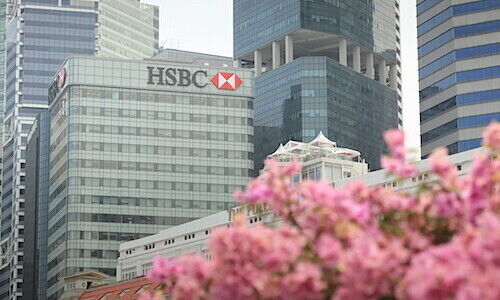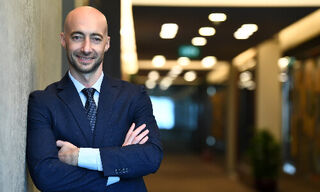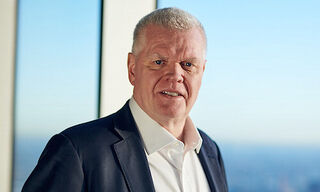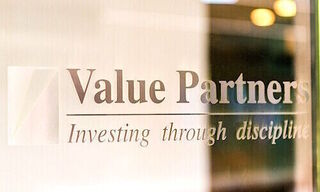Credit Suisse made none of the issues public at the time: Signac was quietly dissolved mid-2017, and Palantir continued to work for the bank – with some of the same staff as Signac's, according to emails submitted in Graham's legal documentation.
The Zurich-based lender didn't say anything about Signac until one year later when a Credit Suisse spokeswoman told finews.com that the joint venture didn't exist anymore. By December, CEO Thiam presented a slide at an investor event saying that Credit Suisse had only begun working on «holistic» surveillance of its traders to root out potential criminals.
Product Phased Out
He cited Palantir – «some of the best minds in Silicon Valley» – without mentioning Signac. Credit Suisse's view is that the bank had developed the software from scratch with Palantir, without using any intellectual property from Signac, according to a person familiar with the bank's stance.
In view of the emails made public in Graham's suit, Credit Suisse simply binned the joint venture's pricey «minimum viable product,» or MVP. Besides the alleged harassment of Graham by Credit Suisse, the financial value of the product is another point of dispute between her and the bank.
High Valuation Touted
The former Signac chief wants to recoup her share of the joint venture, which would have won as much as $100 million over several years from Credit Suisse if the product had shipped (not to mention revenue from licensing to third-party financial providers). Palantir boss Karp once attested Signac a valuation of up to $4 billion, according to people close to the start-up.
«The Signac product including trader holistic surveillance was and continues to be extremely valuable,» Graham told finews.com. «I always thought it was valuable. Everyone did.»
Vigorous Defense
That Graham's share of Signac was never financially valued is part of her claim, pending with a U.S. court. The compliance veteran is making her case for the second time, which Credit Suisse is fighting vigorously.
«Credit Suisse has conducted thorough and comprehensive internal investigations into every one of Ms. Graham’s claims and found them to be entirely baseless,» a spokesman for the bank said. «We will continue to vigorously defend this matter and refute all these allegations in any forum.»
«Extremely Unhappy»
Signac's product is described as «awesome» in the emails, and later Credit Suisse's Warner, now in the top risk job, is described as «extremely unhappy» over developments at the start-up. Whatever the reasons for Signac's failure, Credit Suisse isn't willing to provide any transparency over how or why the joint venture was abandoned.
As Signac pushed towards a May 2017 date to conclude the MVP, Palantir and Credit Suisse staff were working behind the scenes to dissolve the venture. For Credit Suisse, the move came against the backdrop of an effort to hold less capital for operational losses – something working surveillance software would have helped with.
Close Ties Remain
Such software was never rolled out at Credit Suisse. Instead, Signac was shut down amid resistance from Graham. A large portion of staff moved to either the bank or to Palantir, where they effectively worked towards the same goals as before – in a different structure.
Warner and Thiam remained entwined with Palantir and Karp despite their obvious frustration with the joint venture – it has the Silicon Valley to thank for its «single client view» software, ordered by the Swiss regulator 16 months ago following a money-laundering scandal. Credit Suisse is likely to reap rewards in the form of a role on Palantir's stock-listing, should Karp eventually take the firm public.
Stain on Reputation
The episode is a rare blot in the stellar career of Warner, a former investment banker and ally of Thiam who has won favor several times in reorganizations under the CEO. Graham's accusation that Warner was aware of or even involved in the alleged surveillance adds an additional dent to the top executive's reputation.
Credit Suisse denies observing Graham. The bank recently apologized for spying on two of its top executives in Zurich, after each of the episodes surfaced in media reports. Operating chief and long-time Thiam associate Pierre-Olivier Bouée, who ordered the observation, left the bank and was later sacked by Credit Suisse after the second spy incident surfaced.
- << Back
- Page 2 of 2



























